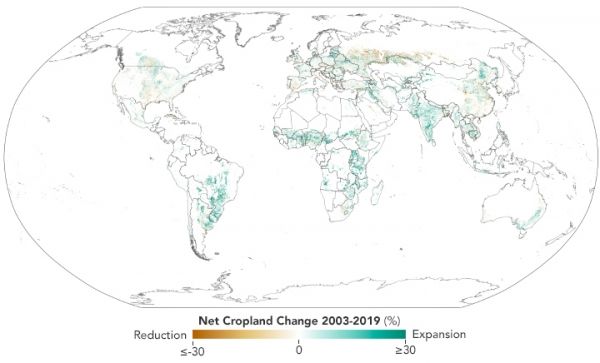Earth’s population grew from 6.4 billion to 7.7 billion people during the past two decades. Experts project global population will approach 10 billion by 2050. That’s a lot of new mouths to feed.
In a world where food producers already face serious challenges—including climate change, urbanization and development of farmland, and ongoing human conflicts—growing populations put extra pressure on farmers and ecosystems to produce enough food. New mapping from the Global Land Analysis & Discovery Lab (GLAD) at the University of Maryland could help. Researchers there have assembled detailed maps of global cropland change.
According to the GLAD team analysis, the total land area covered by crops has increased , since 2003 by 9 percent, or 1 million square kilometers (about 400,000 square miles). That’s an area about the size of Egypt. Half of the new cropland replaced other natural vegetation such as grasslands or forests. The other half came from the recultivation of abandoned farmland or conversion of pastures.
Continue reading at NASA Earth Observatory
Image via NASA Earth Observatory


